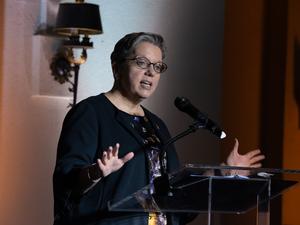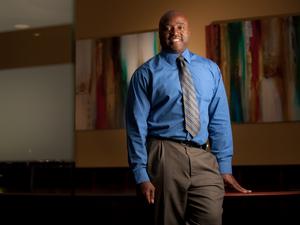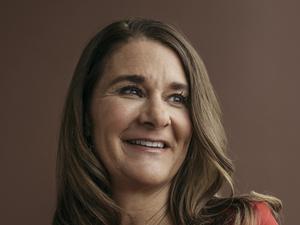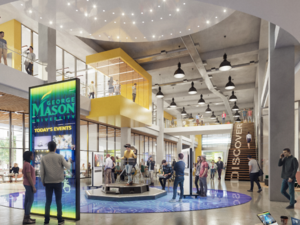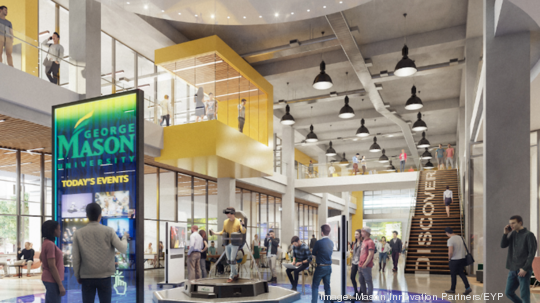
Sanmay Das isn't fretting very much about scientists accidentally developing sentient artificial intelligence that then annihilates humanity.
“I think there are more immediate things to worry about than a Terminator destroying us,” said Das, a computer science professor at George Mason University whose research is focused on AI and machine learning.
Instead, he's more worried about the role of racial bias in the kinds of AI-powered algorithms that nowadays are pushing advertisements, recommending social media content and operating in the criminal justice system. And that, Das said, could substantially hurt the emerging tech field in the long run.
“The thing I most worry about is that we aren't going to think about this stuff sufficiently,” he said. “It won't be sufficiently regulated, bad things will happen and there will be a societal backlash that will prevent us from making progress in this field for a long time.”
To address this, George Mason University aims to recruit four tenure-track professors who will teach and conduct research in public policy and social justice issues related to technology such as AI. The plan is to bring on those faculty members in spring 2022 and fall 2023. For initial hiring costs, a GMU spokeswoman said it will tap dollars, without specifiying an amount, from the state-funded Tech Talent Investment Program — an Amazon HQ2-inspired effort that offers $1 billion to Virginia's 11 public higher education institutions to produce more computer science-degreed graduates.
The initiative spawned when George Mason University solicited ideas from faculty as part of a “Thematic Hiring Initiative.” The university folded ideas from Das and Christopher Carr, chief diversity officer at GMU’s Volgenau School of Engineering, to ultimately form a new focus on “AI, Social Justice and Public Policy,” in what they envision will be part of a new multidisciplinary approach to GMU's research.
Both Carr and Das said that development of facial recognition technology and unmanned drones will require more people from diverse backgrounds and perspectives to avoid racial bias.
“We want students to be thinking about the moral implications about the choices they make and the design decisions they make when designing an algorithm," Das said. “So when these folks are out there, managing a production team at Amazon, Facebook or Google, they will be more cognizant.”
This is another opportunity for the university to hone an already growing emphasis on diversity, equity and inclusion when considering these professorships, Carr said. Beyond being the largest public institution in Virginia, GMU’s student body is one of the most diverse in the state. It is essential that students have role models who understand their experience, Carr said.
“Our students are craving that at Mason,” Carr said. “They are looking to see more faculty that look like them and who can speak to the challenges and problems that impact their community.”
That doesn't limit the hiring effort, however. “I wouldn't be upset if there was a white man that applied for this who was an expert in AI in discriminatory practices,” Carr said. “It's just as important to have their voices as well. But I strongly hope that this opens up space for people from historically marginalized backgrounds.”
More importantly, Carr hopes this helps Mason position itself as an exemplar in the region for integrating social and transformative justice in engineering policy and leadership.
That said, diversity in computer science studies and the social ramifications of technology have been growing concerns for several D.C.-area universities. As part of its plan to build a $1 billion computer science-focused graduate campus in Alexandria, Virginia Tech appointed Sylvester Johnson, an African American and religious studies scholar, to head its “Tech for Humanity” initiative, which is focused on ethics and responsible innovation. Johnson previously worked in AI projects at Northwestern University.
With funding from Amazon, University of Maryland at College Park is also added two doctoral fellowships in robotics. The school also expanded its capstone course in autonomous robotics and funded university chapters of the Black Engineers Society and the Society of Professional Hispanic Engineers and Clark School’s Center for Minorities in Science and Engineering.
